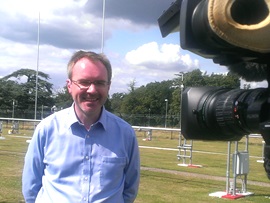Food science, climate and ecology put Reading among world’s best research institutes
20 December 2017

The University of Reading is home to some of the world's most influential research scientists in 2017, according to new analysis.
The Clarivate Highly Cited Researchers table lists more than 3,300 most cited scientists in the world - those who have published a high number of papers ranking in the top 1% most-cited in their respective fields over the last 11 years.
This group includes six outstanding University of Reading scientists - whose work, Clarivate explains, has repeatedly been judged by their peers to be of ‘notable significance and utility'.
Only 11 other UK universities - Oxford, Cambridge, Edinburgh, UCL, Imperial, Manchester, King's College, Exeter, LSHTM, Leeds and Southampton - had more highly-cited scientists listed than Reading.
The six most cited Reading researchers are:
- Jonathan Gregory - a climate scientist and one of the world's leading experts on sea levels
- Glenn Gibson - a microbiologist who has shown the role of gut bacteria on human health
- Jeremy Spencer - a food scientist who explores links between diet and health
- Simon Potts - an ecologist who studies the role of bees and pollinators and led a key UN environment report
- Nicolas Bellouin - a climate scientist uncovering the role of dust on the climate
- William Collins - a climate scientist researching air quality, pollution and climate change.
Professor Steve Mithen, University of Reading Deputy Vice-Chancellor and Pro-Vice-Chancellor for research and innovation, said: "Reading is an institution that conducts research of the highest quality, so it is no surprise to see six of our colleagues listed among the most cited scientists in the world.
"They are among our brightest research stars, but research at Reading is characterised both by strength in depth, and a broad range of excellent research across the sciences, social sciences, arts and humanities."
See the full 2017 Clarivate Highly Cited Researchers listings.
